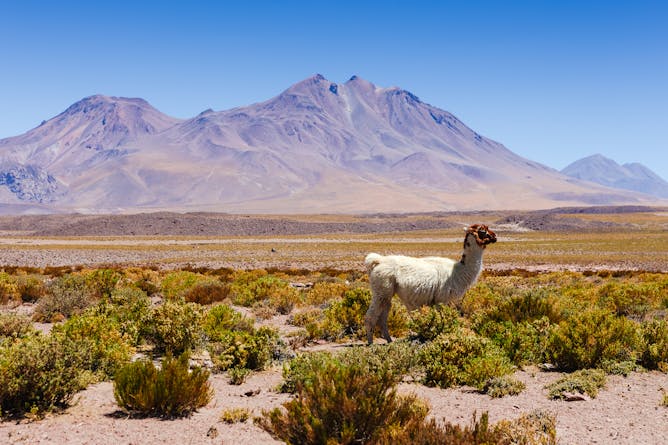|
|
|
|
As the UK passes the tragic milestone of 100,000 deaths from COVID-19, it’s becoming increasingly clear that some communities are suffering more than others. We’ve known since the early days of the pandemic that people from black, Asian and minority ethnic groups are more at risk from coronavirus than white people.
Now a study of hospitals in East London – one of the most diverse parts of the UK – has revealed that Asian COVID patients were 49% more likely to die within 30 days of admission compared to patients from white backgrounds. Black people were 30% more likely to die with COVID-19 than white people. These differences can’t be explained away by underlying conditions or geography, but are probably driven by social disadvantage, the study’s
authors write.
In Israel, the COVID-19 vaccination program is speeding ahead with 48% of the population receiving a first dose so far. How did they move so fast? By agreeing to share data with the manufacturer Pfizer, and paying a high price for the vaccines. But the rollout has not been without controversy particularly relating to the status of the occupied territories.
And new research has shown how the bone-dry Atacama desert in Chile was settled 3,000 years ago. The secret was the use of a pre-Incan “super-fertiliser”, otherwise known as bird poo.
|
Megan Clement
Commissioning Editor, COVID-19
|

|
|

Facundo Arrizabalaga/EPA
Yize Wan, Queen Mary University of London; Vanessa Apea, Queen Mary University of London
Black patients were 30% and Asian patients 49% more likely to die within 30 days of hospital admission compared to patients from white backgrounds of a similar age and baseline health.
|

Israel’s fast-track vaccination programme is providing data for the world on efficacy.
Abir Sultan/EPA
Aditya Goenka, University of Birmingham
Israel is vaccinating its population at an impressive rate and sharing the data with the world. But at what price?
|

The Atacama is the driest place on earth outside of a few Antarctic valleys.
Olga Danylenko / shutterstock
Francisca Santana-Sagredo, Universidad Católica de Chile; Julia Lee-Thorp, University of Oxford; Rick Schulting, University of Oxford
Guano helped humans farm the world's driest desert, new research finds.
|
Health + Medicine
|
-
David Courtney, Queen's University Belfast
The UK government has claimed the new British variant of the coronavirus may be 30% more deadly.
-
Sarah L Caddy, University of Cambridge
Neutralising antibodies aren't the only game in town.
-
Ziggi Ivan Santini, University of Southern Denmark; Ai Koyanagi, ICREA
Across Europe, intensified loneliness is associated with a six- to ten-fold increase in worsened depressed mood, anxiety symptoms and sleep problems.
-
Richard Faragher, University of Brighton
Preventing age-related disease could give us five more years of healthy life in older age.
|
|
Politics + Society
|
-
Benedetta Zocchi, Queen Mary University of London
The hardship of the pandemic has exposed the extreme nature of a policy the prime minister didn't even appear to know about.
-
Muqtedar Khan, University of Delaware; Garret Martin, American University School of International Service; Jennifer M. Piscopo, Occidental College; Joyce Mao, Middlebury; Julius A. Amin, University of Dayton
Biden wants to restore US global leadership after four years of Trump's isolationism and antagonism. These are some of the challenges and opportunities he'll face, from China to Latin America.
-
Sumit Ganguly, Indiana University
India's most populous state has brought in a law to police interreligious marriages, known as the 'love jihad' law. Here is what that means.
|
|
Education
|
-
Fiona Lavelle, Queen's University Belfast; Moira Dean, Queen's University Belfast
Children should never play with knives – but they can learn how to use them.
-
Kerry Griffiths, Sheffield Hallam University
Taking part in sport at university can bring huge benefits.
|
|
Science + Technology
|
-
Manzoor Qadir, United Nations University; Vladimir Smakhtin, United Nations University
From capturing fog to towing icebergs, these technologies could help reduce water shortages.
|
|
Environment + Energy
|
-
David Sims, University of Southampton
A high seas treaty could help rebuild populations – but time is running out.
|
|
|
|
Podcasts
|
-
Gemma Ware, The Conversation
There are lots of different ways to listen to The Conversation's podcasts.
|
|
| |
Featured events
|

|
Online, Birmingham, Warwickshire, B15 2TT, United Kingdom of Great Britain and Northern Ireland — University of Birmingham
|

|
Wivenhoe Park, Colchester, Essex, CO4 3SQ, United Kingdom of Great Britain and Northern Ireland — University of Essex
|

|
East Road, Cambridge, Cambridgeshire, CB11PT, United Kingdom of Great Britain and Northern Ireland — Anglia Ruskin University
|

|
Wivenhoe Park, Colchester, Essex, CO4 3SQ, United Kingdom of Great Britain and Northern Ireland — University of Essex
|
|
|
|
| |
| |
| |
| |
| |
|
|
|
|
|
|
|